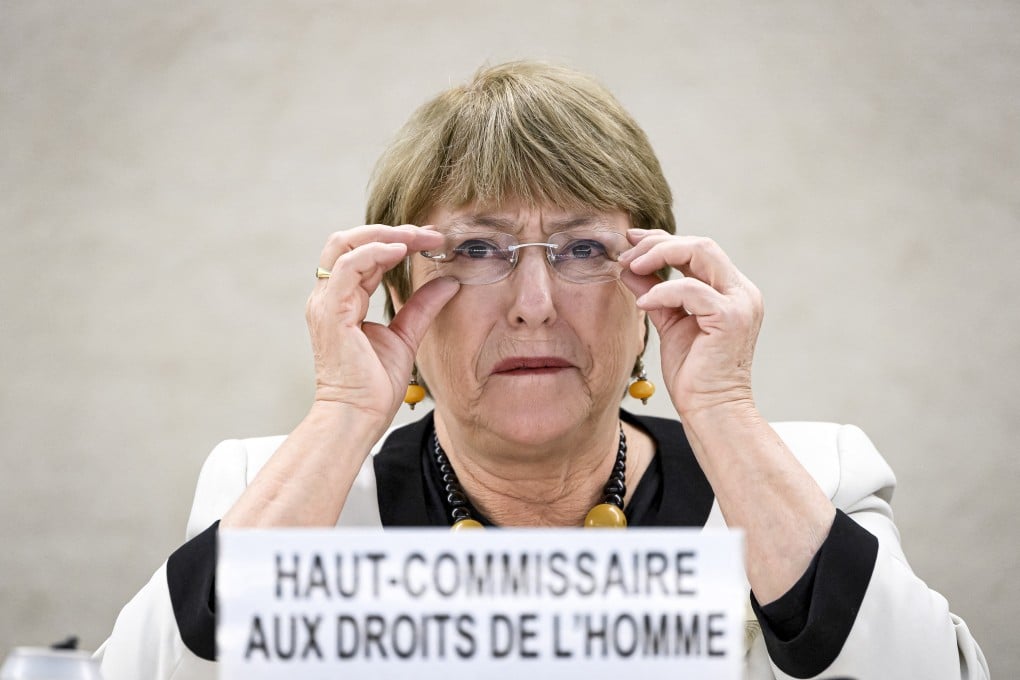Advertisement
UN human rights chief to visit China for six days next week
- Chinese foreign ministry says Michelle Bachelet will visit the country from Monday to Saturday but does not give further details
- She will meet high-level officials, civil society groups and academics, and go to Kashgar and Urumqi in Xinjiang, according to her office
Reading Time:2 minutes
Why you can trust SCMP
10

Michelle Bachelet will travel to China for six days next week – the first visit to the country by a United Nations human rights commissioner since 2005.
China’s foreign ministry and Bachelet’s office both announced the trip on Friday.
Foreign ministry spokesman Wang Wenbin said in a brief statement that Bachelet would visit from Monday to Saturday at the invitation of the Chinese government, without giving further details.
Advertisement
According to a statement released by Bachelet’s office, she will meet a number of high-level officials at the national and local levels, as well as civil society organisations, business representatives and academics. Bachelet will also deliver a lecture to students at Guangzhou University.

The UN human rights chief will also visit the cities of Kashgar and Urumqi in Xinjiang, the far western region where the Chinese government has been accused of widespread human rights abuses, including persecution of Uygurs and other ethnic Muslims.
Advertisement
“At the end of her mission, Bachelet will issue a statement and is scheduled to hold a press conference on 28 May,” the UN statement said.
Advertisement
Select Voice
Select Speed
1.00x